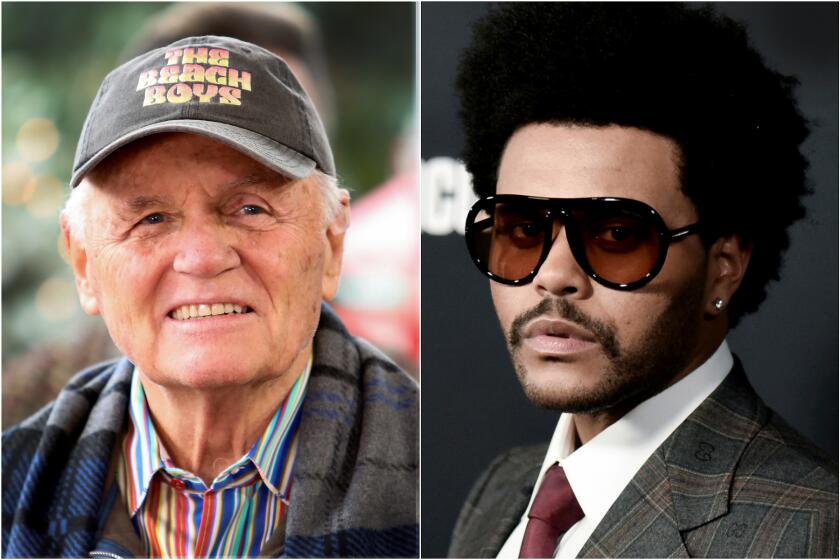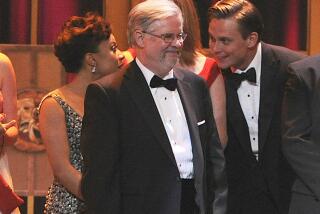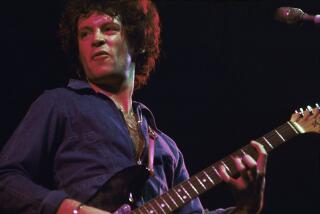Marilyn Bergman, award-winning lyricist for Barbra Streisand and others, dies at 93
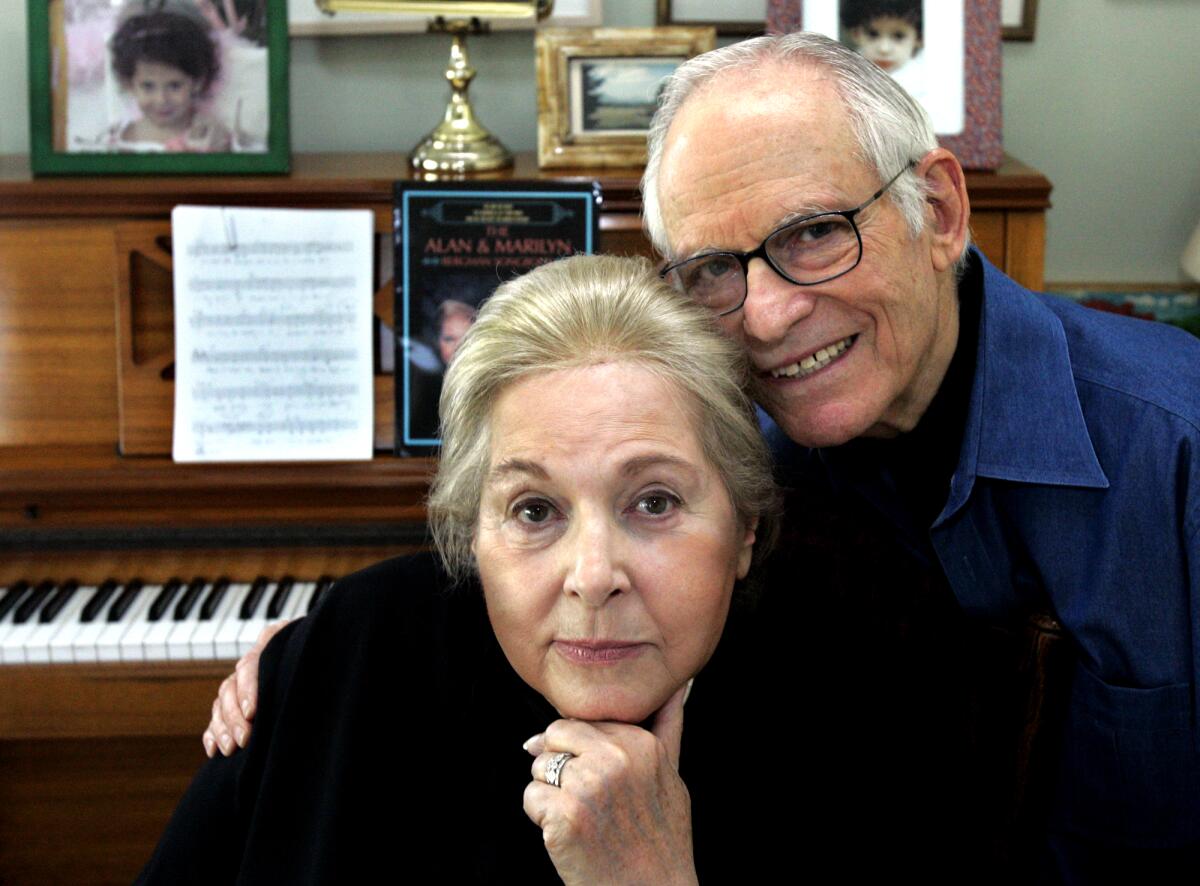
Marilyn Bergman, the prolific lyricist who as half of a songwriting duo with her husband, Alan, wrote the words for dozens of widely interpreted songs including “The Windmills of Your Mind,” “What Are You Doing the Rest of Your Life?” and the Oscar-winning theme from 1973’s “The Way We Were,” died Saturday. She was 93.
Her death, at her home in Beverly Hills, was confirmed by her spokesman, Ken Sunshine, who said the cause was non-COVID-related respiratory failure.
A member of the Songwriters Hall of Fame, Bergman wrote about romance — its first flush and its last gasp — with a flair for striking visual imagery and an almost philosophical bent: Consider the “misty watercolor memories” of a couple’s happier days as evoked in “The Way We Were,” or of the mounting existential questions two aging lovers face in “How Do You Keep the Music Playing?”
“How do you lose yourself to someone and never lose your way?” asks the latter song, best known in a lush 1982 rendition recorded by Patti Austin and James Ingram, “And since you know we’re always changing, how can it be the same?”

Yet Bergman vividly addressed other topics too, as in “The Windmills of Your Mind,” a trippy conjuring of a bank robber’s frazzled mental state set to music by Michel Legrand, and “In the Heat of the Night,” with its stark vision of American racial strife: “Stars with evil eyes stare from the skies all mean and bright,” Ray Charles sang in the gospel-fired version he recorded, with music by Quincy Jones, for Norman Jewison’s 1967 film starring Sidney Poitier, who died Thursday.
In a career that stretched over half a century, the Bergmans worked frequently with Legrand and Jones as well as composers Henry Mancini and Marvin Hamlisch; their songs were recorded by countless stars, including Barbra Streisand, Frank Sinatra, Johnny Mathis, Tony Bennett, Diana Ross, Lionel Richie, Dusty Springfield, Sting and Gladys Knight.
Fittingly, it had something to with surfing. And somehow Skrillex was involved.
With a moody minor-to-major chord progression by Hamlisch, “The Way We Were” — a commercial smash in Streisand’s rendering — inspired subsequent interpretations by acts as diverse as Barry Manilow, Willie Hutch and Donna Summer. In 1993, the Wu-Tang Clan prominently sampled Knight’s cover of the song for “Can It Be All So Simple,” a haunting cut from the rap group’s groundbreaking debut, “Enter the Wu-Tang (36 Chambers).”
Beyond the Oscar for “The Way We Were” (written for Sydney Pollack’s weepy blockbuster with Streisand and Robert Redford), the Bergmans won Academy Awards for “The Windmills of Your Mind” (sung by Noel Harrison in 1968’s “The Thomas Crown Affair” and remade as a sultry torch song by Springfield on her classic “Dusty in Memphis”) and their score for Streisand’s 1983 film “Yentl.” They also won four Emmys, two Golden Globes and two Grammys, including the coveted song of the year award for “The Way We Were.”
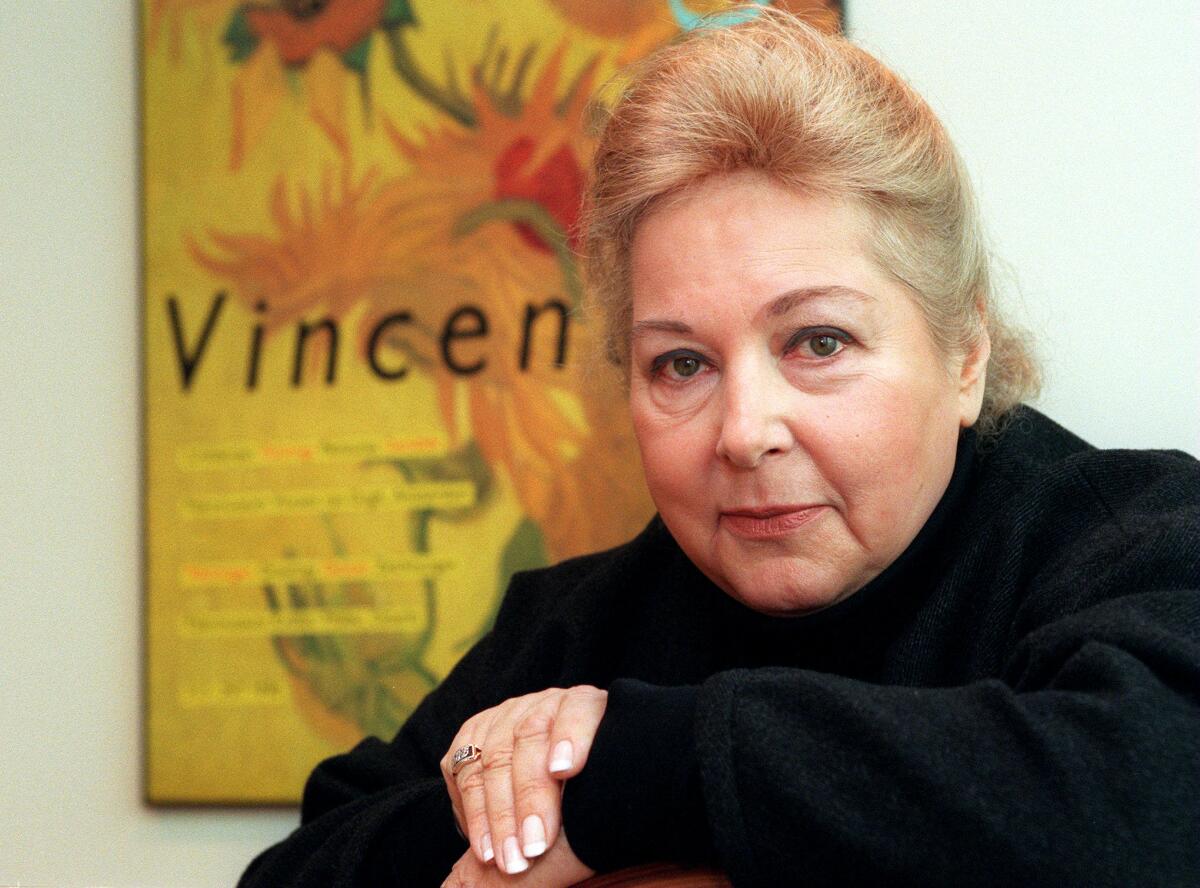
On Instagram on Saturday, Streisand — who also recorded “Windmills,” “What Are You Doing the Rest of Your Life?” and “Where Do You Start?” — described the Bergmans as “brilliant lyricists” and said the couple “were like family” to her. “We met over 60 years ago backstage at a little night club, and never stopped loving each other and working together,” she wrote. Songwriter Diane Warren thanked Marilyn Bergman on Twitter for writing “so many songs that will live forever,” and a post on Bennett’s social media identified “How Do You Keep the Music Playing?” as his favorite song.
Norman Lear, the veteran TV writer and producer, tweeted, “There was only one Marilyn Bergman,” and said she “takes a bit of our hearts and souls with her today.” In the late ’70s, the Bergmans wrote “You Don’t Bring Me Flowers” with Neil Diamond for Lear’s short-lived series “All That Glitters”; the song went on to top Billboard’s Hot 100 as a duet between Diamond and Streisand.
In 2011, Streisand released an album of songs by the Bergmans, “What Matters Most.” A collection of Sinatra’s recordings of the Bergmans’ music — including “L.A. Is My Lady,” about his and the songwriters’ adopted home — came out in 2019.
Marilyn Katz was born on Nov. 10, 1928, in Brooklyn, in the same hospital where Alan Bergman had been born three years earlier. Alan, 96, survives his wife, along with their daughter, Julie Bergman, and a granddaughter.
Marilyn studied music in high school and earned a bachelor’s degree in psychology and English at New York University. After breaking her shoulder in a fall in 1956, she came to Los Angeles, where her parents had moved; eventually she landed a gig writing lyrics for composer Lew Spence, who introduced her to Alan Bergman, with whom Spence also wrote. The couple married in 1958, Alan having written “That Face” with Spence as an engagement present.
The three went on to write the title track for Sinatra’s chart-topping “Nice ’n’ Easy” album.
The Bergmans met Streisand, whom they described as their muse, in the early 1960s after a concert the singer gave at New York’s Bon Soir nightclub.
“As soon as she started to sing, Marilyn started to cry,” Alan recalled in an interview with The Times in 2011. Backstage, Marilyn said she asked the singer, “Do you know how wonderful you are?”
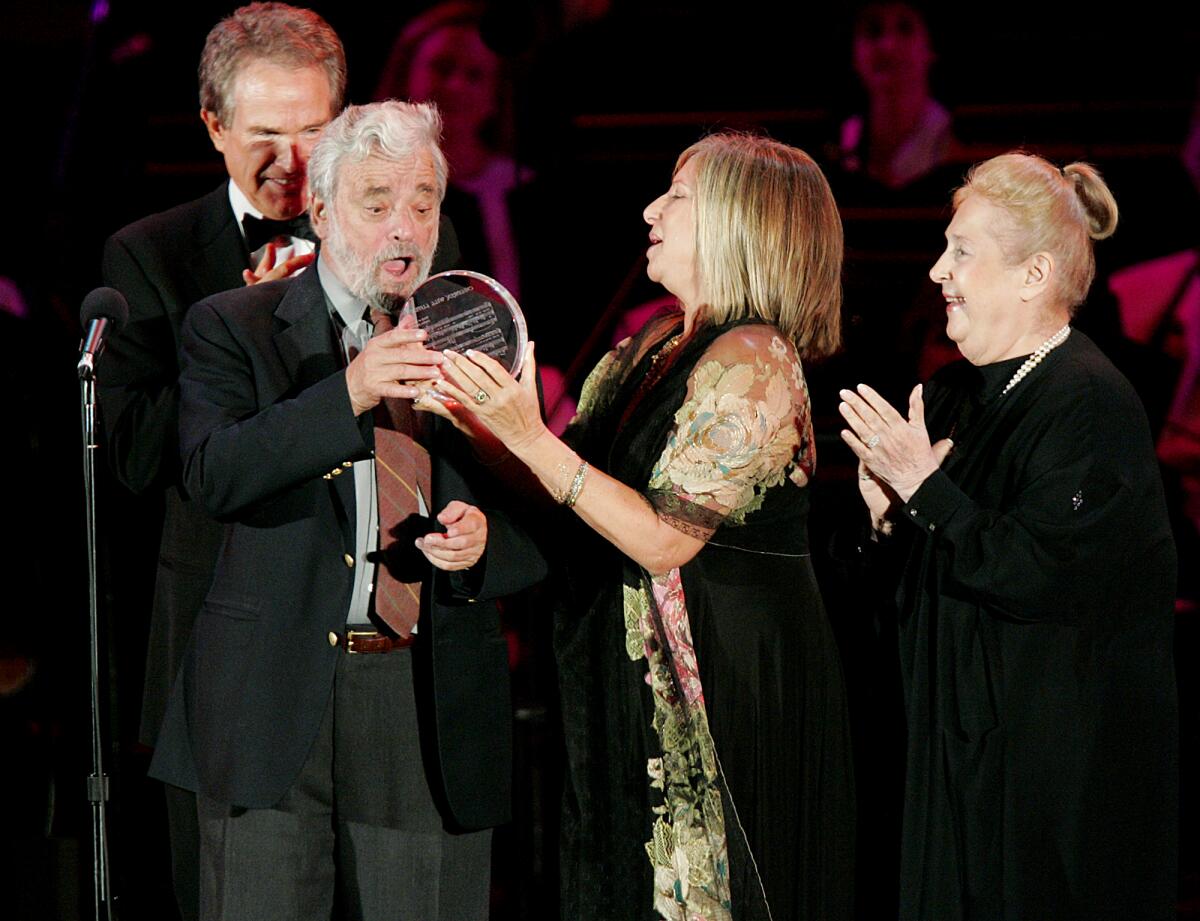
In the ’70s the couple wrote lyrics for the theme songs of TV shows such as “Maude,” “Alice” and “Good Times,” but they didn’t view that work as less deserving of their imagination than music for the movies. “Lady Godiva was a freedom rider / She didn’t care if the whole world looked,” went “Maude’s” theme, memorably sung by Donny Hathaway.
“You have to reach for their songs — they don’t talk down to you,” Lear, who created “Maude,” told The Times in 2008.
In 2009 Bergman retired as the first female president of the performance rights organization ASCAP, a position she held for 15 years. She was also a founding member of the Hollywood Women’s Political Committee, which raised money for Democratic political candidates. In 1993 she and her husband wrote material for President Clinton’s first inauguration.
“More than one person has told me that they were married to ‘What Are You Doing the Rest of Your Life?,’ broke up to ‘Where Do You Start?’ and divorced to ‘The Way We Were,’” Marilyn said in 2008. “That’s a great responsibility, being the soundtrack for people’s lives.”
More to Read
The biggest entertainment stories
Get our big stories about Hollywood, film, television, music, arts, culture and more right in your inbox as soon as they publish.
You may occasionally receive promotional content from the Los Angeles Times.
